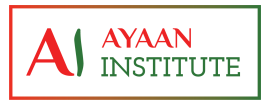Fatih Kırşanlı of the Ayaan Institute argues that corruption is endemic in the Muslim world and tackling it must become a priority.
Corruption is a global phenomenon. It is usually defined as the misuse of public office for private gain. Although there is no consensus on this definition due to cultural norms and values, it is a fact that both countries of the Global North and South suffer because of corrupt practices. For example, the Middle East and North Africa (MENA) are considered some of the most corrupt regions in the world. They suffer from formal types such as political (scandals of MPs or nepotism on government procurement decisions) and bureaucratic (bribing police officers, doctors, or making payments to secure a job) corruption.
The negative effects of corruption in social, political, and economic spheres have increased exponentially in recent decades. Although several studies illustrate that corruption might increase development by overcoming bureaucratic hurdles, the overwhelming majority claim that corruption negatively affects development. However, most of these studies concentrate on formal corruption practices in political and bureaucratic arenas.
While it is important to look at formal corruption, most developing countries, including those from MENA, struggle with informal practices. For example, it is near to impossible to get a job or secure a government procurement without having “wasta” (network) and “hamula” (clientelism) within the government through tribal relationships. These informal connections make prominent tribes more influential in government decisions and sometimes create significant obstacles in the decision-making process due to their negotiations with the authorities. Even though “wasta” and “hamula” systems are experienced with different names in various parts of the world, they play a crucial role in MENA to understand how different dynamics (formal and informal) function within the same phenomenon.
Combined with informal practices, corruption undermines the development process of countries in the region. Due to higher levels of corruption, MENA regions suffer from increased income and wealth inequalities, inequality of opportunities (i.e., unable to reach essential services without tribal and kinship relations), higher unemployment, and inflation. Not surprisingly, poor economic outcomes led to the Arab Spring protests in 2011 since long-term regimes could not find permanent remedies to corruption issues.
Arab Uprisings: A Turning Point in History
Though they share the same cultural values, religion, and language, there are dissimilarities amongst the MENA countries. For instance, oil-rich Gulf monarchs are different from republics like Egypt, Syria, Yemen or democracies like Tunisia and Lebanon. There are also economic differences between them. Compared with the average, oil-rich nations have two-to-nine times more GDP per capita. However, although political and economic systems differ, one phenomenon is shared among all, that is citizen discontentment with high levels of corruption.
In December 2010, Tunisian vendor Mohammed Bouazizi immolated himself due to government authorities’ role in hampering his struggle to make a living. Protests, which started after this incident, quickly spread across the region. Citizens of Egypt, Libya, Tunisia, Syria, and Yemen began to protest their dictatorships. The Shi’a population of Bahrain also went to the streets to protest unequal government treatment. Lebanon, Jordan, and Morocco also experienced many street protests. One of the fundamental causes of the Arab uprisings was corruption leading to economic deterioration. Citizens were suppressed due to a high level of political corruption, inequality of opportunities, and poor local governance. Before the Arab Spring, almost all countries in the region suffered from high levels of corruption. With a growing youth population’s, corruption unleashed predictable anger and revolutionary protests. Nevertheless, the protests did not bring solutions to the issues. On the contrary, they have exacerbated the circumstances; therefore, some still believe that Arab Spring has not ended yet, a decade after the protests. There have been ongoing protests in Algeria, Lebanon, Iran, Iraq, and Sudan.
In 2019, Transparency International reported the Corruption Perception Index (CPI) of the MENA region as 39 on average (on a scale of 0 – 100, with higher scores implying less corruption). MENA is below the global average of 43 and is only slightly better than Sub-Saharan Africa, Eastern Europe, and Central Asia. The same report mentions that there has been only a slight improvement in the region in terms of corruption since the 2011 Arab uprisings. Moreover, according to the recent survey of ASDA’A BWC, a Dubai-based public relations agency, corruption is the third most important issue for people after immigration and political unrest. The finding implies that the Arab Spring did not lead to a more egalitarian environment on political, economic, and social issues within societies. Quite the opposite, the situation appears to have deteriorated after a decade. This is mainly due to a failure to develop well-functioning governance and civil society institutions.
Current State of MENA Region
According to the recent Transparency International world ranking, released in January 2022, the two better-performing countries of the region, the United Arab Emirates and Qatar, still enter the world at 24th and 31st place respectively. Despite being nearer the top of the world ranking makes the Financial Action Task Force (FATF) plans to add UAE to the “grey list” due to financing terrorism and money laundering. FATF has already put Syria, Yemen, South Sudan, Jordan, and Turkey – all are in the MENA region – into the grey list due to illegal activities. Therefore, the UAE must implement specific policies to cut money laundering to protect its glowing reputation globally.
At the bottom of the world ranking, seven out of the last ten are Muslim countries, and five are in the MENA region (Libya, Yemen, Somalia, Syria, and South Sudan). The ranking of Lebanon has also gone down, due to the current economic collapse. In addition, high corruption levels due to no consensus between sects on key issues have pushed Lebanon to the brink of bankruptcy. If Lebanon cannot develop a solution quickly, it will become a failed state, and many other nations appear to be following the same path.
The overall picture tells us that more than half of the MENA countries are below the developed world’s corruption rankings. While corruption scores get worse, other index scores also go down. Six indicators of World Governance Indicators, namely voice and accountability, political stability an absence of violence, government effectiveness, regulatory quality, the rule of law, and control of corruption, are also alarming for the MENA region. Low scores in six indicators, the failure to integrate with the world economy, and the inability to implement structural policies for better governance, extenuate the dire conditions for the MENA day by day.
For instance, recent news relevant to the worsening state of MENA countries is that there are billions of dollars of looted resources in the West from the previous Libyan regime, and this wealth has not been returned to the new government. There is no doubt that Western laws and regulations make the process harder for Middle Easterners. Still, the main problem is that there is no official Libyan authority to proceed with the hearings. Similar arguments can be made for Syria, Yemen, Lebanon, Iraq, and other countries where the central government either does not exist or is too weak to assert its authority. Thus, the most critical point is good governance regardless of the names of specific countries. Otherwise, the autocratic mentality stays the same, even if administrations change. The promising news is that 2022 is considered a year where MENA countries state they will be paying more attention to corruption prevention, through anti-corruption measures.
Future Implications
The young and dynamic population of MENA and their connection and engagement with the rest of the world are always advantageous; however, governments should create opportunities to utilize these advantages locally and nationally. If corruption continues to be rampant in the region without any solutions, economic and political turmoil will grow.
First and foremost, political will is key to alleviating corruption. Membership of international anti-corruption agencies has secondary importance and is useless unless high-quality local governance exists. Anti-corruption agencies are vital for effective governance, but these can also be used for political victimization to punish political opponents. For example, Jordan tried to prevent corruption in government by attempting to control tax evasion but is accused of using corruption to punish the opposition parties. Although being a fair accusation, it is still important to show political determination to eliminate corruption. If citizens see the sacrifice of political parties and leaders even at the expense of winning, the perception of corruption might immediately change in the MENA.
Simultaneously, MENA countries should provide basic services for all citizens since universal access to basic rights should not be a luxury. Service provision might alleviate informal practices, creating a sense of belonging to the nations, and this is achievable only through good governance and high institutional quality, which are key to alleviating corruption in the MENA region in the future. If the Muslim world is to make political and economic progress, then tackling corruption needs to be high on the political agenda.
Fatih Kırşanlı is a senior researcher at the Ayaan Institute’s Economics and Trade Unit.



Leave a Reply